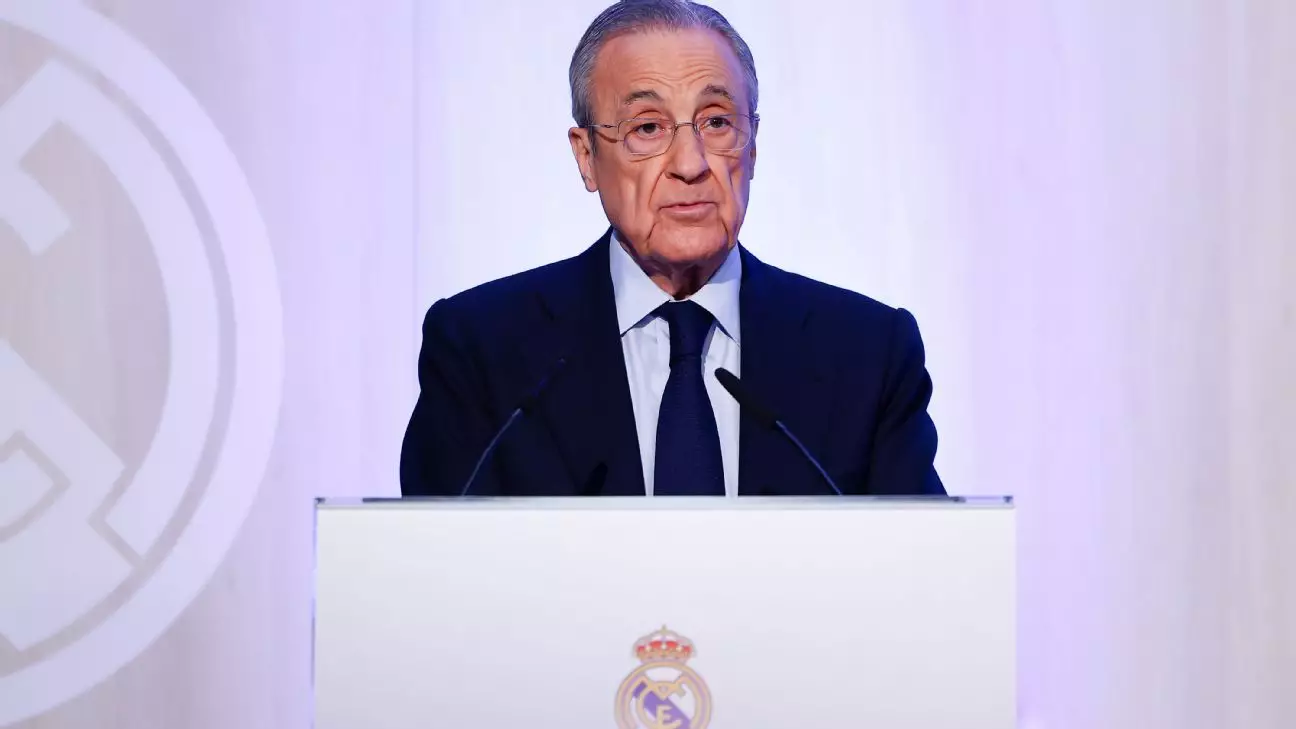Florentino Pérez has reaffirmed his position as the president of Real Madrid, marking his latest unopposed re-election for a four-year term. The announcement comes on the heels of a presidential election process that invited potential candidates to submit their nominations. However, the club’s stringent eligibility criteria effectively deterred any opposition, highlighting Pérez’s enduring authority and the institutional barriers that lock in established leadership.
At 77, Pérez embodies both the aspirations and controversies of modern football governance. His leadership period, extending from two separate terms beginning in 2000 and resuming in 2009, has witnessed sweeping transformations that elevated Real Madrid to unprecedented heights. Yet, the same man who orchestrated the club’s illustrious runs also encapsulates the growing dissent surrounding elite football management, particularly with his ambitious yet contentious proposals such as the European Super League.
The Spanish football giants maintain a rigorous selection process for the presidency, a framework that was reinforced through voting by club members in 2012. The stipulations require that a presidential candidate must possess at least 20 years of membership in Real Madrid, along with a personal financial guarantee equivalent to 15% of the club’s operating budget. These requirements not only serve as a shield against unsuitable candidates but also inherently favor those with longstanding ties and substantial wealth, which Pérez, undoubtedly, exemplifies.
Since his return in 2009, Pérez has had no serious rivals contesting his position, making his re-elections in 2013, 2017, and now 2025 a rather predictable outcome. This absence of competition raises questions about the club’s commitment to democratic principles, suggesting that the landscape is engineered to perpetuate his longstanding presidency—a phenomenon not unique to Real Madrid, as many major football clubs face similar criticism over the concentration of power.
Pérez’s first term introduced the ‘Galáctico’ philosophy, which centered around recruiting elite players, leading to significant successes including La Liga titles and the UEFA Champions League. This star-studded assembly of talent, however, was met with the harsh reality of performance inconsistency, ultimately leading Pérez to resign in 2006 after a drought of trophies. Upon his return, he has since orchestrated a spectacular revival, culminating in multiple La Liga championships and Champions League triumphs, effectively reiterating his capacity to steer the club to success.
Yet, this glory has not been without its challenges. For all the titles won since 2009, including five La Liga trophies and six Champions League titles, Pérez’s administration has also been marked by periods of turbulence, particularly in dealing with managerial changes and maintaining squad harmony. His success brings with it an acute awareness of the pressure surrounding performance, where any misstep could provoke public criticism and scrutiny.
Significantly, Pérez has been at the forefront of ambitious initiatives that have sparked considerable debate within the football community. His advocacy for the Super League, now rebranded as the Unify League, epitomizes his vision for the future of football. Arguing that transformative changes are crucial to safeguard the sport’s trajectory, he has frequently clashed with UEFA President Aleksander Ceferin and La Liga President Javier Tebas. These conflicts illuminate the tensions arising from divergent interests in commercializing football, emphasizing a broader struggle over governance and economic frameworks that impact clubs across Europe.
Such ambitions elicit a mixed response from fans, players, and stakeholders alike. While some applaud Pérez’s forward-thinking approach, others criticize it as elitist and detrimental to the spirit of competition that underpins football. This dichotomy exemplifies the challenges faced by influential figures like Pérez, where visionary aspirations often conflict with traditional values that have long defined the sport.
As Florentino Pérez prepares to embark on another term as president, the landscape of Real Madrid and broader football is at a crossroads. His unopposed continuation signals stability, yet it simultaneously represents a call to action for reflection on governance practices within elite football clubs. The dichotomy of his success and controversies underscores the complex narrative driving the current state of the sport, leaving fans to ponder the implications of his unyielding reign. In a rapidly changing football environment, the question remains: How will Pérez navigate the dichotomies of tradition and innovation to lead Real Madrid into its next chapter?

